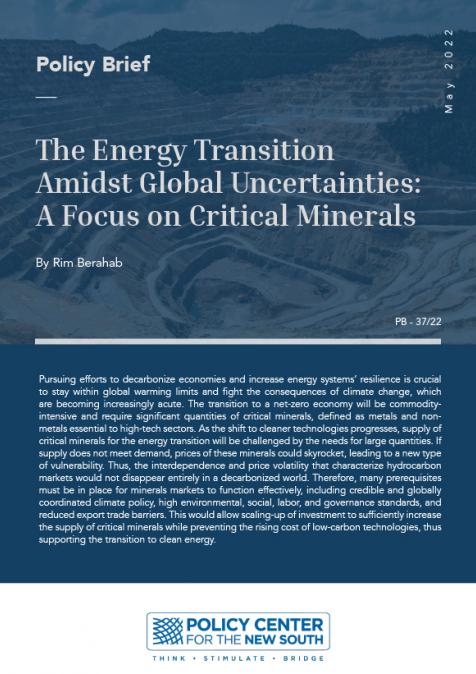Publications /
Policy Brief
Pursuing efforts to decarbonize economies and increase energy systems’ resilience is crucial to stay within global warming limits and fight the consequences of climate change, which are becoming increasingly acute. The transition to a net-zero economy will be commodityintensive and require significant quantities of critical minerals, defined as metals and nonmetals essential to high-tech sectors. As the shift to cleaner technologies progresses, supply of critical minerals for the energy transition will be challenged by the needs for large quantities. If supply does not meet demand, prices of these minerals could skyrocket, leading to a new type of vulnerability. Thus, the interdependence and price volatility that characterize hydrocarbon markets would not disappear entirely in a decarbonized world. Therefore, many prerequisites must be in place for minerals markets to function effectively, including credible and globally coordinated climate policy, high environmental, social, labor, and governance standards, and reduced export trade barriers. This would allow scaling-up of investment to sufficiently increase the supply of critical minerals while preventing the rising cost of low-carbon technologies, thus supporting the transition to clean energy.







